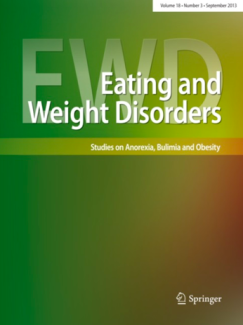Search
Representation of Adverse Childhood Experiences Linked with Lower Public Stigma Towards People Who Use Drugs
Public stigma towards people who use substances can impact people seeking support and treatment outcomes. It can also influence how public health policy is shaped and accepted.
Researchers have been interested in understanding how people...
Principles of Care for Young Adults With Substance Use Disorders
Researchers from the Grayken Center for Addiction at Boston Medical Center have published a series of articles in the Pediatrics journal addressing the six principles of care for young adults with substance use disorders.
The aim of the...
The Decline of Heavy Episodic Drinking in Adolescents in Finland, Norway and Sweden
Around the world, there has been a decline in heavy drinking among adolescents.
In this study, researchers compared these trends in Finland, Norway and Sweden using information from the ESPAD survey- a project that has data on substance...
Domestic Violence, Substance Misuse and Mental Ill-health: The Toxic Trio
Within research examining adverse childhood experiences, the toxic trio describes the risk of child abuse and neglect stemming from a child’s exposure to domestic violence, parental mental health issues and/or learning disability, and...
Prices, Alcohol Use Initiation and Heavy Episodic Drinking among Chilean Youth
Research suggests that early initiation of alcohol use is a risk factor for multiple problems later in life, including heavy episodic drinking and alcohol use disorders.
Prevention scientists are particularly interested in understanding...
Discussing Alcohol Use with the GP
A General Practitioner (GP) is often the first point of contact for people struggling with alcohol related issues. These doctors must be trained to detect problematic drinking as well as have the confidence and skills to have open...
The Relationship Between Alcohol-related Hospital Admission and Specialist Alcohol Treatment Provision in England
In March 2012 the Health and Social Care Act (HSCA) was approved, resulting in the commissioning responsibility of specialist drug and alcohol service transferring from the National Health Service (NHS) to local authorities in England.
Thi...
How Does Parental Supply of Alcohol Affect Risk of Alcohol‐Related Harms in Early Adulthood?
There is evidence to suggest that adolescents who receive alcohol from their parents are at higher risk of developing harmful drinking patterns later on in life.
Despite the concerning link, the knowledge around this subject remains...
Should Cigarette Pack Sizes be Capped?
In an attempt to prevent harmful tobacco use, countries have introduced policies such as the minimum number of cigarettes. This increases the cost of buying a packet of tobacco and it is hoped it will deter young people from buying.
In...
Goal Commitment Predicts Cannabis Use for Adolescents in Treatment
Background: Commitment to change is an innovative potential mediator and mechanism of behaviour change (MOBC) that has not been examined in adolescents with cannabis use. The Adolescent Substance Abuse Goal Commitment (ASAGC) questionnaire...
Rapid Increase in the Prevalence of Cannabis Use Among People with Depression in the United States, 2005–17: The Role of Differentially Changing Risk Perceptions
Abstract
Aims
To estimate trends in the prevalence of cannabis use and risk perceptions of cannabis use from 2005 to 2017 among United States people with and without depression.
Design
Linear time trends of the prevalence of any, daily...
Psychotic Disorders Hospitalisations Associated with Cannabis Abuse or Dependence
Delta 9‐tetrahydrocannabinol - a psychoactive compound found in cannabis - activates parts of the brain responsible for cognition, perception, anxiety, fear, memory and reward.
There are continuous debates about the link between cannabis...
Drug Use Series from the Lancet Journals
Executive Summary
The drug use landscape is dynamic and changing. Changes in public attitudes and laws towards drug use have occurred in an increasing number of countries.
Global drug production and consumption are increasing as are the...
Why is Adolescent Drinking Declining?
There has been a notable decline in adolescent drinking in developed nations over the past two decades. Understanding the reasons behind this positive downward trend will help professionals support the continuation of this decline into the...
Technology-Delivered CBT to Treat Alcohol Use Disorder
Cognitive Behaviour Therapy (CBT) is one of the most researched treatment options for Alcohol Use Disorder. In order to make CBT as accessible and effective as possibles, researchers have been investigating different versions and ways to...
Marketing of Heated Tobacco Products in the Czech Republic - The Role of Social Media
Over the years, there has been a global decline in tobacco consumption, and countries have made significant progress in developing evidence-based and cost-effective tobacco control measures. As a result, tobacco industries have had to...
Smoking Cessation Intervention for People with Severe Mental Illness
It is well documented that people with severe mental health issues are more likely to smoke compared to the general population. Smoking reduces physical wellbeing and is a key modifiable risk factor for health inequality. Despite this...
Food and Addiction
The Journal of Eating and Weight Disorders has put together a topical collection on Food and Addiction.
The collection examines the mechanisms of addiction in relation to eating, gaming and substance use. It also covers research on...
Tobacco Use in Sub-Saharan Africa: The Risks and Challenges
In recent years, the tobacco pandemic’s magnitude and trajectory has shifted away from high-income countries to low- and middle-income countries and so have the tobacco industry’s marketing efforts and tactics.
Research suggests that Sub...
Share the Knowledge: ISSUP members can post in the Knowledge Share – Sign in or become a member







